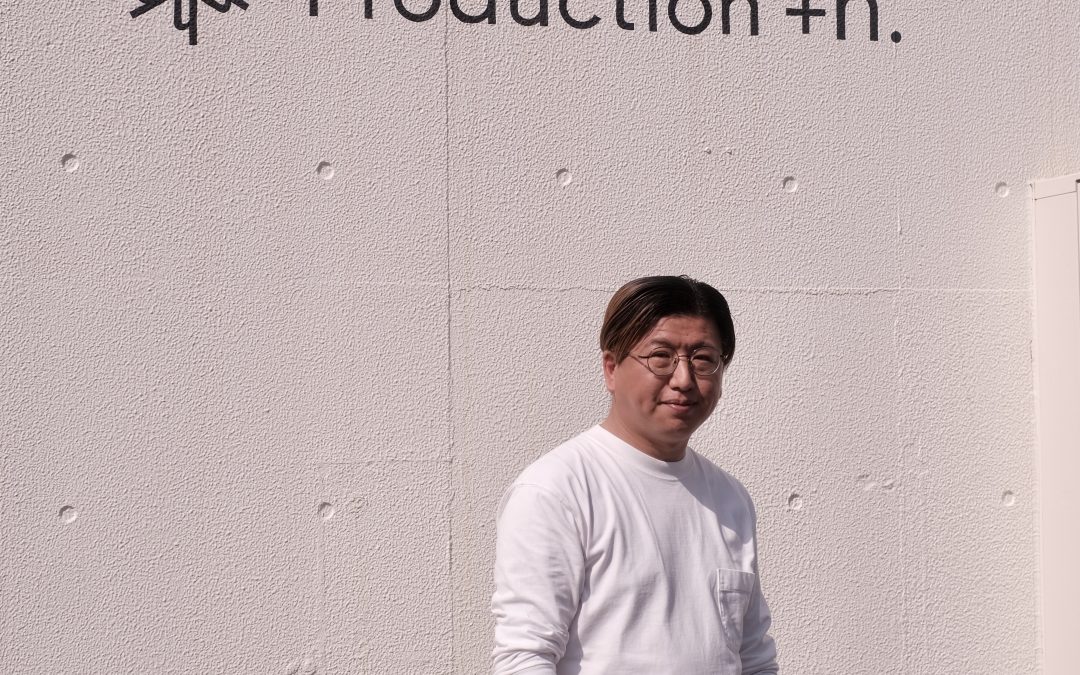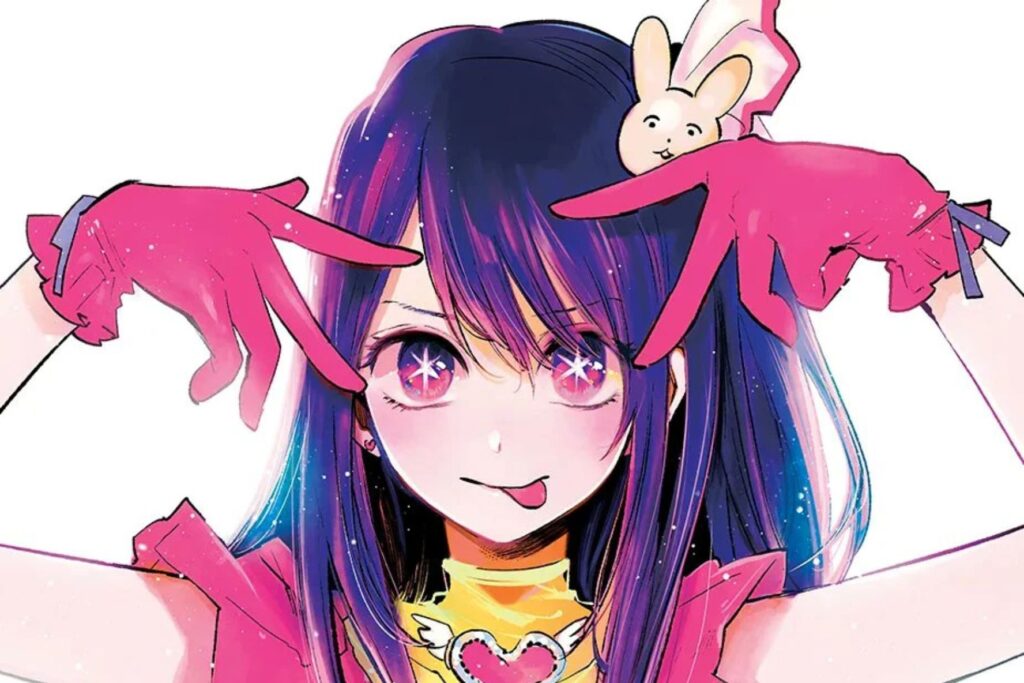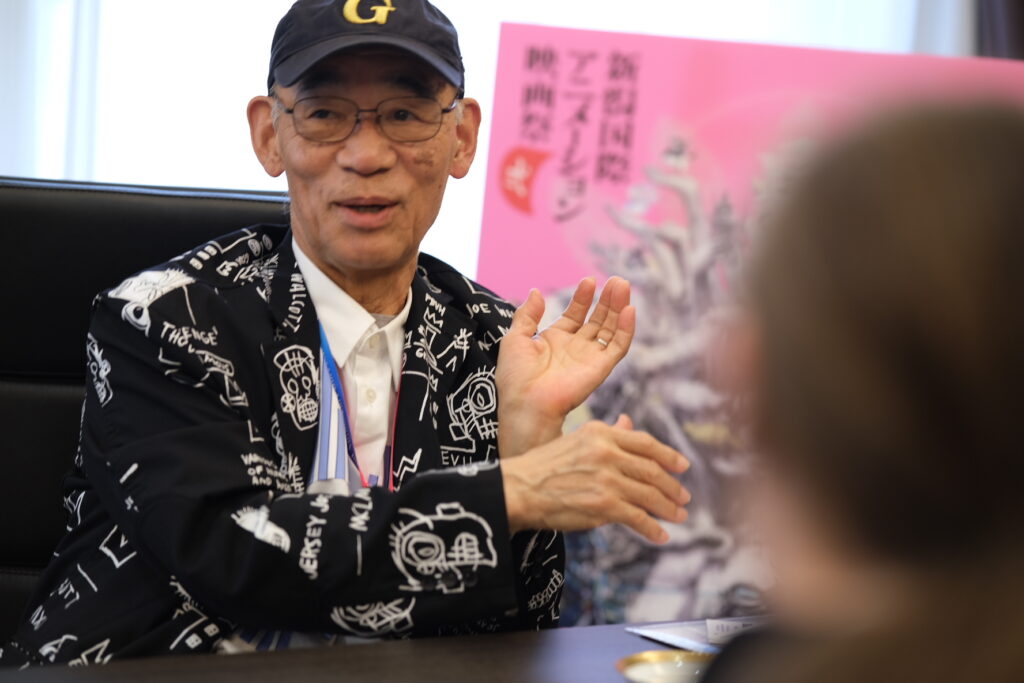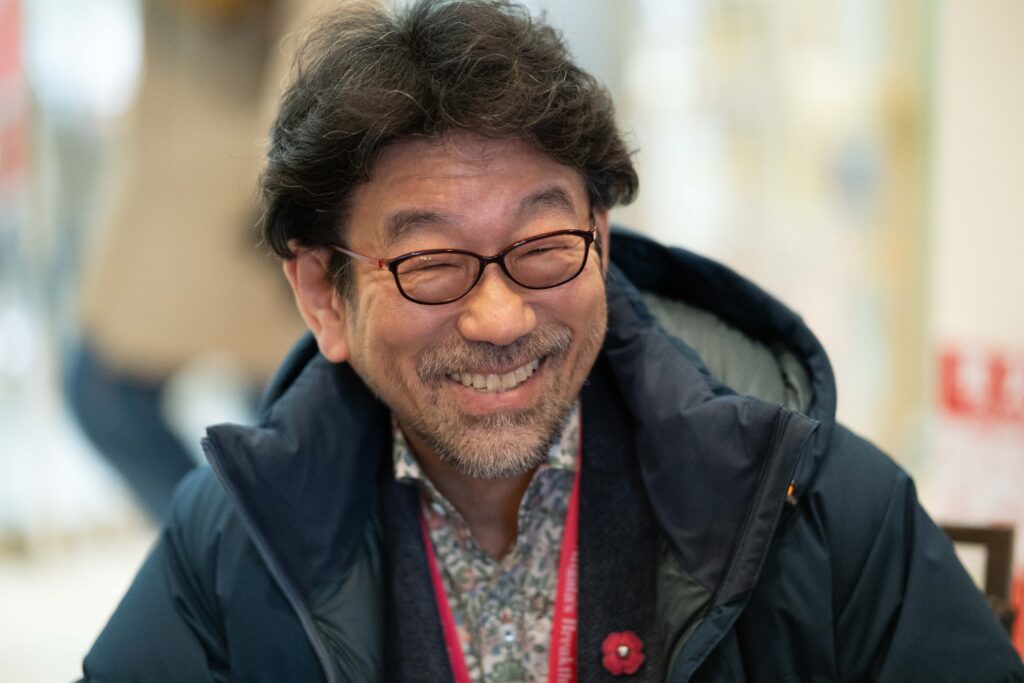Production +h. is an up-and-coming anime studio that got attention for producing Iso Mitsuo’s series The Orbital Children. Its president is Fuminori Honda, who started his career at Production I.G by working alongside Kenji Kamiyama on Ghost in the Shell: Stand Alone Complex – Solid State Society. He then joined I.G’s subsidiary SIGNAL.MD when it was established in 2015.
We had the opportunity to visit Production +h. earlier this year and, on this occasion, were able to converse with Mr. Honda during a short interview.
This interview was possible thanks to the help of our patrons! Support us on Ko-Fi for more interviews!
Last year, we interviewed the former president of Telecom, Mr. Kôji Takeuchi. When we asked him about young producers he found interesting, he mentioned you.
Fuminori Honda: Oh, I’m very grateful.
Can you tell us how you met Mr. Iso?
Fuminori Honda: The first time we worked together was on a film by Production I.G called Giovanni’s Island. I met him when he was still an animator. The producer was Yoshiki Sakurai, who’s now working under the name Taiki Sakurai, and together we had to ask Iso three times to do animation on the film. We finally got him to agree on the third time, just for one cut. I’ll never forget that Christmas Eve the three of us spent at a Spanish restaurant (laughs). That’s how we first met.
Do you remember what cut it was?
Fuminori Honda: It’s a 16-second cut of Russian soldiers drinking while singing this Russian folk song called Troika.
Can you tell us more about Production +h.?
Fuminori Honda: +h. is a place for me to do the things I couldn’t do before the way I want them to. It was established to make a more comfortable environment for creators to create good things more easily, especially in this age of digital technologies and productions. I want to make it easier for them to try out new things. For example, on The Orbital Children, we used a kind of workflow we hadn’t tried out before, discussing things directly with the director and the entire staff, and it turned out really great.
I believe The Orbital Children ended up shorter than initially planned. Why did that happen?
Fuminori Honda: That’s not quite right, actually, even though it’s true that we made some cuts. The original order from the client was six episodes of 20 minutes each, like a regular 6-episodes program. But Iso’s scenario was too interesting and didn’t fit into 20-minute episodes, so every episode ended up lasting more or less 30 minutes. As a result, the actual length is closer to that of 9 TV episodes. So rather than a long story being compressed, it’s more like a short one that got lengthened.
I feel like the length is just right, but I guess Mr. Iso would have liked to make it even longer. How do you feel about it?
Fuminori Honda: I’d really like for it to be longer. There are things that Mr. Iso had planned out in his storyboards that had to be taken out because of schedule and budget constraints… If we had the funds and the time, I’d really love to make a complete version.
It was really hard to gather the funds for the series, right?
Fuminori Honda: It was.
Production +h was created for the production of The Orbital Children, right? How did that happen?
Fuminori Honda: Sometime before +h. was created, Avex Pictures made a lot of efforts to sell the project, and when the pre-sales deal was concluded, after meeting various of their conditions, I created +h. There were no plans to establish a new studio before March 2020, so it’s after that, from April onwards that we started pitching the project at a more serious pace.
I’ve heard many creators complain about working with Netflix because they don’t know how many people watch their work. They don’t have a hand in the promotion and can’t really control their work the way they want to. What’s your opinion?
Fuminori Honda: There’s some of that. Thankfully, in The Orbital Children’s case, the first and second halves were screened in special showings for two weeks each, so to a certain degree, we could see the reactions and hear the voices of the viewers. I’m really glad these screenings happened. But if there’s nothing like that, and if you can only watch something on Netflix, well, you don’t know who’s watching your work, how many people, you can’t see them… For me, and for both creators and producers, not seeing them and not knowing the numbers can be the most worrying.
+h. also did a short film for Anime no Tane. But even though it was supposed to be a training project, you had a lot of veterans on it, right?
Fuminori Honda: Ah, that’s right, we had Masatsugu Arakawa do the direction and Hideki Itô the animation direction. That’s because we go back a long time, more than ten years, and they’ve contributed a lot to works I’ve produced. I didn’t work on it, but Arakawa’s most famous work is IG’s Windy Tales. For the first time, they tried to represent wind, which is actually invisible, in animation. But with Arakawa’s drawings, you can actually see it. With this, I fell under Arakawa’s charm because the layouts he makes are really, really cool. I think he’s one of the few artists in animation who can create such unique layouts with a hand-drawn flavor unique to animation, unrealistic deformations… So I really love his work.
Arakawa’s originally from studio Ajia-Do, and the animation director Itô was at Ghibli alongside Ken’ichi Yoshida. His career is quite original: he quit animation once to become a carpenter. He worked as a carpenter for a while but hurt his finger and went back to animation. He’s been through a lot of things, so he’s someone fascinating to talk to. I’ve also been working with him for a long time.
It’s also on Giovanni’s Island that I worked with these two for the first time. The way I see it, a lot of the people who worked on Giovanni’s Island have been continuing to work with +h. and I.
What are your projects for the future?
Fuminori Honda: Right now, we’re working on the first animated adaptation of a manga by Inio Asano, Dead Dead Demon’s DeDeDeDeDestruction, and we’ve gathered some wonderful staff.
After that, we’re planning a lot of things, many different works, and we’re getting so many offers right now that we’re full until at least 2025. Because we’ll be doing many more projects, I think the studio will grow at a good pace as well.
Do you want to do original works as well?
Fuminori Honda: Of course, we’ll be doing originals.
Any last words?
Fuminori Honda: Let’s see, I’d say that no matter how much you do, it’s impossible to make the perfect animated work. But every time, I channel the frustration of having done something imperfect into my next work. Also, I don’t know how long I’ll be able to contribute to this industry, but I really hope I can transmit my thoughts and feelings to the next generation of creators and make them develop.
Interview conducted by Ludovic Joyet
Translation by Matteo Watzky, Transcription by Comrade Karin
We wish to thank Mr. Honda for his time and his cooperation.
This interview was possible thanks to the help of our patrons! Support us on Ko-Fi for more interviews!
You might also be interested in
Oshi no Ko & (Mis)Communication – Short Interview with Aka Akasaka and Mengo Yokoyari
The Oshi no Ko manga, which recently ended its publication, was created through the association of two successful authors, Aka Akasaka, mangaka of the hit love comedy Kaguya-sama: Love Is War, and Mengo Yokoyari, creator of Scum's Wish. During their visit at the...
Ideon is the Ego’s death – Yoshiyuki Tomino Interview [Niigata International Animation Film Festival 2024]
Yoshiyuki Tomino is, without any doubt, one of the most famous and important directors in anime history. Not just one of the creators of Gundam, he is an incredibly prolific creator whose work impacted both robot anime and science-fiction in general. It was during...
“Film festivals are about meetings and discoveries” – Interview with Tarô Maki, Niigata International Animation Film Festival General Producer
As the representative director of planning company Genco, Tarô Maki has been a major figure in the Japanese animation industry for decades. This is due in no part to his role as a producer on some of anime’s greatest successes, notably in the theaters, with films...





Recent Comments